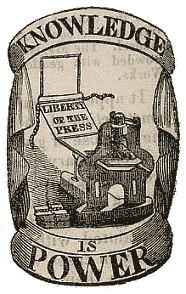



The media is full of stories about various Congressmen and Senators announcing that they are proposing to spend taxpayers money on investigating various subjects from professional sports to the major oil companies.
I don't subscribe to the Federal government sticking their noses in private business, other than to follow charges of violations of the Sherman anti-trust exemption of a particular industry.
The problem with investigations in general, is that they seldom result in anything other than media exposure of those who seek to "puff-up" their own egos. Media exposure seems to be the life blood of too many occupants of the American Congress.
Having said this, and being a capitalist by philosophy, I hesitate to bring up the subject of Congressional investigation. However, the situation we find ourselves in today dictates a break from my normal line of thinking.
The price of crude oil is now $139.00, and food products have been increased as much as 40%. This presents the greatest threat to our economy and way of life since the Great Depression!
Congressman, of the liberal persuasion, have leaped to the conclusion that Big Oil is resposible. It is only natural that those of a socialist persuasion would attack capitalism as their object of scorn. But in this case simple research could lead these same leftist to the conclusion, that I have come to believe is the cause for our dilemma. This brings to mind the famous quote by Abraham Lincoln:" You can fool all the people some of the time, and some of the people all the time, but you cannot fool all the people all the time."
The problem we have with the high cost of crude oil and therefore, gasoline and natural gas, is the free enterprise system has allowed the speculators, arbitragers and commodities brokers to bid up the price of crude oil.
In the Commodities Markets of Chicago( the largest)and New York, they have traded commodities like pork bellies, cotton, orange juice and grains for decades. The market allows people to sell long and sell short with the bet being that whatever commodity is purchased, will be higer or lower in price when the contract they buy comes due.
Then the Ecologists screamed global warming warnings, and politicians fell for the scare tactics, and hatched the bio-fuels subsidy schemes. Farmers stopped growing wheat and soy beans, in favor of growing government subsidized corn for ethanol. Food prices slowly rose, and then the media began screaming that we were faced wih a depletion of the oil in the ground if we didn't conserve, and the stage was set for the Wall Street boys to enter the game!
"For decades, oil was too cheap. Until 1999, a barrel went for less than $10 (€6.40).Then the rising economies like China, India, Russia and Brazil stimulated demand for oil, driving up the price.. But what really changed the market were the big pension and investment funds joining in the commodities market "merry go round". Source: Der Spiegel
Oil is the lubricant of our economy. As it keeps getting more expensive, the engine of the economy begins to stall. And wheat and rice, as staple foods, are truly essential to human life. As they become more and more expensive, poor people must go hungry or, in some cases, even starve as in Somalia, from famine!
In late 2003, commodity brokers invested only $13 billion in the food commodities business. By March 2008, that number had jumped to $260 billion, an increase of 1,900 percent.
Last year, new investments in the commodities markets amounted to roughly $100 million a day. At the beginning of this year, what had been a steady flow turned into a torrent, with more than $1 billion flooding the market every day. Hedge funds, banks, pension funds, investment funds -- in other words, groups that represent millions of small investors -- are all involved. At first they invested their money in the dot-com market, then in real estate, and now agriculture and the energy markets are their choice.
Speculators -- and speculation bubbles -- have always existed, as a look back in history shows. What is new is the sheer volume of speculation, numbering in the billions, in recent years.
This has something to do with modern financial markets and their instruments, known as derivatives, which major American investor Warren Buffet has rightfully described as "weapons of mass destruction".
But these weapons are only effective because the central banks have created the necessary environment. Never before in history has the world been deluged by such a flood of money. The largest employee fund in the USA CALPERS has heavily invested in oil and food products futures.
There are over 300,000 different securities being traded each day on the World's markets.
It is the "Wild West" of investment in the commodities markets, with litile or no controls on the amount of money that is invested by hedge funds. They may have perverse financial incentives, with litle of their own capital involved in the hedge funds they are manipulating.Traders use every excuse they can think of to drive up prices!
Because of the weak dollar and the high price of oil. The new defacto currency has become crude oil!
Since the commodities market now operates on expectations not on actual value like stocks, massive amounts of borrowed money can be invested . This creats a huge bubble that at some point could burst. And much as I hate to say it, the Federal Governement should spend their time examining this investment vehicle, to determine if the proper regulations are in place to prevent another crisis like the sub-prime mortgage debacle!







